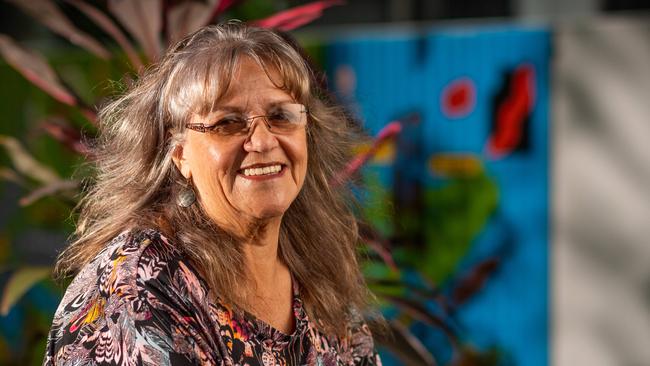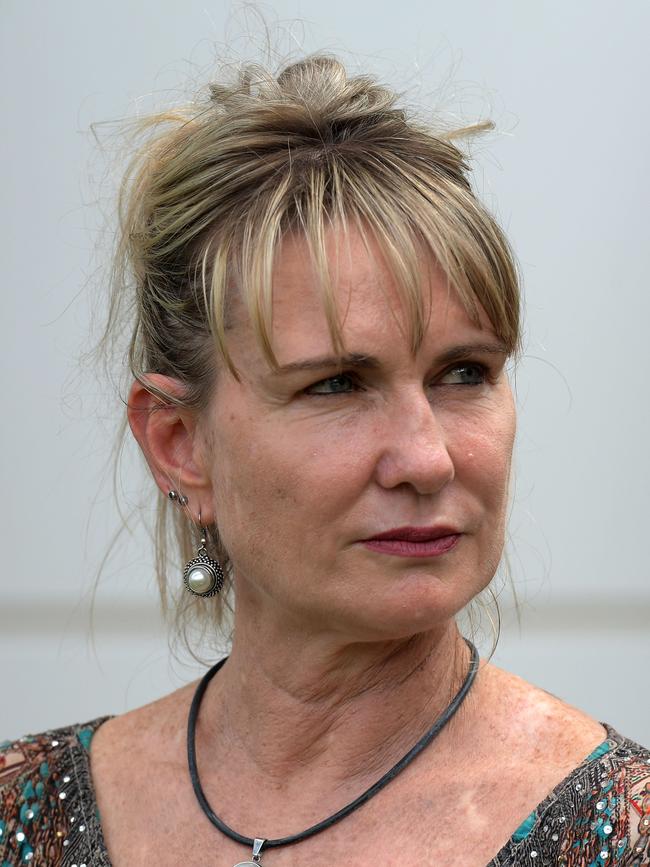Aboriginal workers at NAAJA forced to perform ‘culturally inappropriate’ tasks, KPMG report finds
Aboriginal employees within Australia’s largest Indigenous legal agency feel their culture has not been respected, while other workers have been sexually harassed or forced to work excessive hours.

Aboriginal employees at Australia’s largest Indigenous legal agency have been repeatedly asked to perform tasks that are “culturally inappropriate” while other workers have been sexual harassed or forced to work excessive hours, an independent KPMG report has found.
The report comes amid explosive allegations of corruption among current senior staff members of the North Australia Aboriginal Justice Agency, who are the subject of a possible probe by the Auditor-General to determine whether they have consistently misused taxpayer funds.
NAAJA on Wednesday issued a public statement in response to reports published in this masthead, saying the agency “categorically refutes” any accusation of wrongdoing, and has called on the NT Police and the AFP to wrap up ongoing investigations ”as a matter of urgency”.
The statement also made reference to two independent reports conducted for the agency, which revealed glaring holes in NAAJA governance.
One of the reports, conducted by KPMG and obtained by The Australian, found more than one third of employees said they did not feel entirely safe raising issues of harassment, sexual harassment, bullying or discrimination without fear of victimisation or negative career implications.
The report also found that Aboriginal staff members were not made to feel “culturally safe”.
“There are instances where Aboriginal staff are being asked to perform duties that are culturally inappropriate, where their cultural knowledge or experience is not accepted or respected, where Aboriginal staff feel they have not been treated fairly or equitably, and that some Aboriginal staff feel that cultural awareness training as it applies to Aboriginal staff (rather than Aboriginal clients) is not adequate,” the report reads.
KPMG’s consultations also identified an issue of sexual harassment, finding the person who reported being harassed “did not feel that their report was managed sensitively or satisfactorily.”

“Consultees reported that it is routine for junior workers with little or no experience to be undertaking work with no or very minimal supervision or guidance, and with no or very minimal training or induction,” the report found.
“Consultees further reported that managers are often unavailable to manage their staff and provide structured supervision in the case of legal staff.
“There is a lack of transparency around management decision making, as well as a lack of accountability for staff and managers who may have done the wrong thing. While NAAJA has a strong policy framework, this is not seen to be followed by staff, who have requested better accountability and transparency mechanisms across the board.”
NAAJA said it had taken on all recommendations made in the report, and is “is committed to ensuring that NAAJA continues to deliver quality services to its clients and community.”
The Australian on Wednesday revealed Auditor-General Grant Hehir has been urged to probe the alleged misuse of millions of dollars in taxpayer funds within NAAJA.
Opposition legal affairs spokeswoman Michaelia Cash referred the matter to Mr Hehir earlier this month, pressing an investigation into the near-$20m provided to the agency every year.
NAAJA conducts the lion’s share of Indigenous legal cases in the NT, where crime has increased by double digits in the past year. The organisation employs about 200 workers across Darwin, Palmerston, Katherine, Alice Springs and Tennant Creek.
The Australian understands the NT Independent Commission Against Corruption is investigating the allegations, many of which have come to light in a Federal Court case filed by ousted CEO Priscilla Atkins, who alleges she was fired from NAAJA after discovering the corrupt conduct of finance chief Madhur Evans and chairperson Colleen Rosas.
Ms Atkins claims Ms Rosas appointed her friends to senior positions within NAAJA, and requested her pay be given to her on a credit card so as not to alert the tax office and threaten her Centrelink pension.
Along with making a discreet $20,000 payment to Ms Rosas, Ms Atkins alleges Ms Evans left her mobile phone in offices to record unsuspecting colleagues, and bullied NAAJA workers.
NAAJA denies allegations that Ms Evans and Ms Rosas engaged in deceptive conduct, and claims Ms Atkins was fired for forging Ms Rosas’ signature on her contract extension document, securing her position as CEO – and its $350,000 salary – for a further five years.
NAAJA has also alleged Ms Atkins used company funds to buy nine vehicles, flights, clothes and artworks. Ms Atkins denies all allegations of misconduct.
Ms Rosas and Ms Evans continue to work for NAAJA.
Sources believe NAAJA will spend up to $1m on the trial, after it recruited global firm King & Wood Mallesons to represent them.
The matter is scheduled for trial from October 23.







